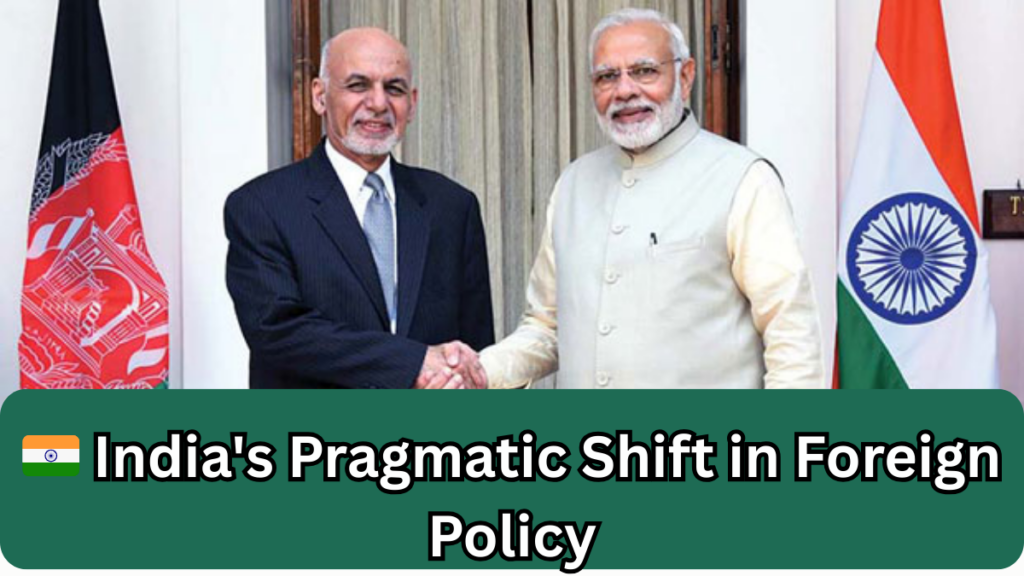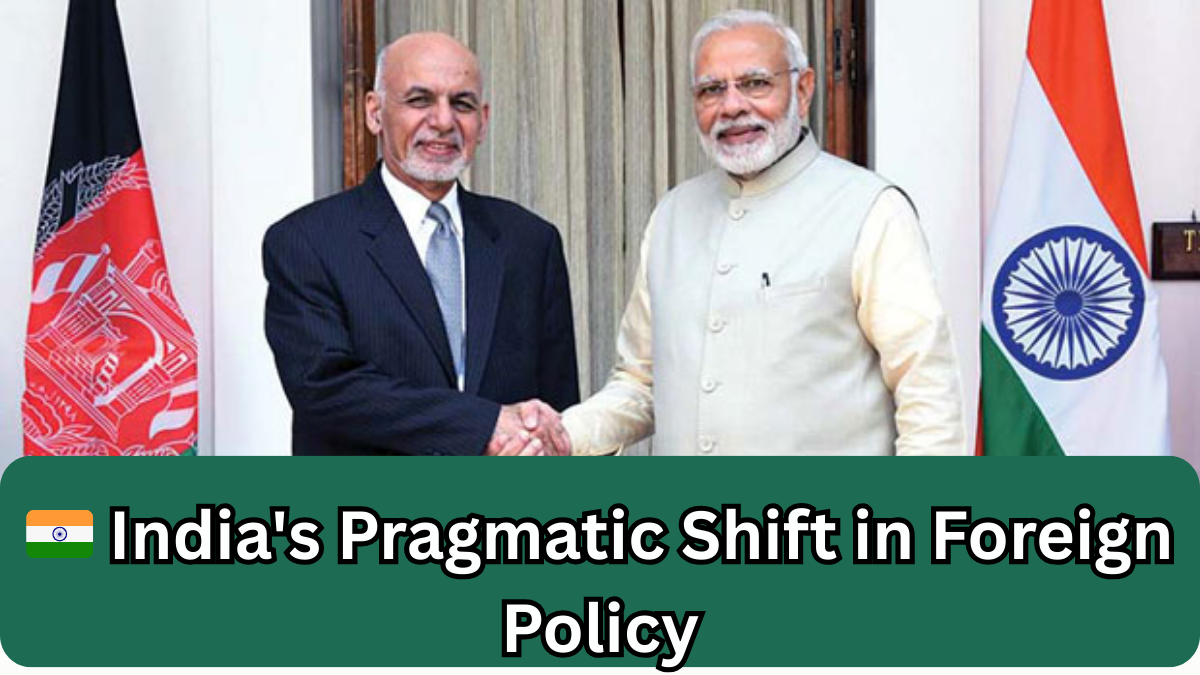India’s foreign policy is standing at a fascinating crossroads. In a surprising yet calculated move, the Modi government is reportedly considering allowing the Taliban to appoint a head of the Afghanistan Embassy in New Delhi—but without granting full diplomatic status. It’s a move that reflects New Delhi’s evolving diplomatic strategy and its effort to maintain a balancing act in a region riddled with complexities.
Let’s break down what this means, why it matters, and how it might shape the future of India-Afghanistan relations.

Background: India’s Initial Stand Against the Taliban
When the Taliban regained control of Afghanistan in August 2021, it triggered global concern. India, like many democratic nations, was hesitant to recognize a regime known for extreme ideologies, human rights abuses, and violent history. Here’s how India initially responded:
-
Refused official recognition of the Taliban as the legitimate Afghan government.
-
Suspended all consular services while keeping its Kabul Embassy minimally operational.
-
Continued to back the Islamic Republic of Afghanistan, the previous government overthrown by the Taliban.
Despite this strong stance, changing geopolitical realities have nudged India toward a more nuanced position.
A Diplomatic U-Turn? Not Quite.
India’s latest move isn’t exactly a reversal—but rather a carefully calculated step to keep dialogue channels open with Kabul.
What’s Being Considered:
-
India may allow the Taliban to appoint a head of mission for the Afghan Embassy in New Delhi.
-
However, no diplomatic status will be granted to the Taliban-appointed envoy.
-
The embassy will continue to represent the former Islamic Republic of Afghanistan, not the Taliban regime.
This strategy allows India to engage practically without legitimizing the Taliban’s authority—a move that’s both diplomatic and deliberate.
Key Highlights at a Glance
| Aspect | Status/Action Taken |
|---|---|
| Taliban’s Role | Allowed to appoint head of embassy (tentative) |
| Diplomatic Recognition | Not granted |
| Embassy Representation | Remains for Islamic Republic of Afghanistan |
| India’s Kabul Mission | Open, but consular work suspended |
| Purpose of Decision | Strategic engagement without legitimization |
Why Is India Taking This Path?
India’s decision isn’t based on goodwill alone. It’s driven by a mix of strategic, humanitarian, and diplomatic considerations.
1. Geopolitical Strategy
-
Afghanistan is India’s neighbor, and chaos there can spill over.
-
By keeping limited communication open, India can safeguard its national and regional security.
-
With Pakistan and China actively engaging the Taliban, India cannot afford to be on the sidelines.
2. Humanitarian Commitments
-
India has provided wheat, medicines, vaccines, and other essential aid to Afghan citizens.
-
This move could streamline assistance efforts and ensure aid reaches the people, not just the government.
3. Diplomatic Engagement
-
By allowing an appointee without full status, India creates a middle ground: not complete rejection, not full acceptance.
-
This facilitates ongoing dialogue in case negotiations are needed in the future.
4.Avoiding Diplomatic Isolation
-
Countries like Russia, China, Iran, and even Qatar have started engaging with the Taliban.
-
India risks being left out of crucial talks if it doesn’t maintain some level of interaction.
Global Reactions: Mixed, but Watching Closely
International reactions to India’s move are likely to be mixed. While some may view it as a strategic necessity, others might consider it a concerning precedent.
-
Western powers such as the US and EU remain cautious, largely avoiding formal ties with the Taliban.
-
Russia, China, and Pakistan, however, have made diplomatic overtures, strengthening the Taliban’s legitimacy in some forums.
India’s decision might influence other democracies to consider a similar path—engaging without recognizing.
What This Means for India’s Broader Foreign Policy
This isn’t just about Afghanistan. It’s about how India is positioning itself as a responsible, pragmatic power in a complex global order.
What India’s Policy Signals:
-
Openness to flexible engagement, without compromising on values.
-
Willingness to be part of regional dialogues.
-
Maintaining strategic autonomy—not falling into the orbit of any global power bloc.
In short, India is threading a diplomatic needle—a tightrope walk that aims to combine realpolitik with responsibility.
Key Takeaways
-
India may allow the Taliban to appoint a representative to the Afghan Embassy in New Delhi.
-
The appointee will not receive diplomatic status or recognition.
-
The embassy will still represent the Islamic Republic of Afghanistan, not the Taliban government.
-
This decision reflects India’s evolving geopolitical approach, not a full shift in ideological stance.
Frequently Asked Questions (FAQs)
1. Is India recognizing the Taliban government?
No. India has not officially recognized the Taliban as the legitimate government of Afghanistan. The move to allow a Taliban appointee does not equate to formal recognition.
2. What is the Taliban’s role in the Afghan Embassy in New Delhi?
The Taliban may be allowed to appoint a head of mission, but the person will not have full diplomatic status and will not be considered an ambassador.
3. Why is India engaging with the Taliban now?
Due to regional strategic concerns, humanitarian obligations, and to maintain relevance in regional diplomacy, India is choosing pragmatic engagement over total isolation.
4. Could this set a precedent for other countries?
Possibly. Other nations observing India’s cautious engagement may adopt a similar dual approach—maintaining contact without recognizing the Taliban regime.
Conclusion:
India’s potential decision to allow a Taliban-appointed representative at the Afghan Embassy is not a diplomatic surrender—it’s a strategic adaptation. It allows India to remain engaged with Afghanistan’s people and its evolving political landscape without endorsing the Taliban’s controversial rule.
Click here to learn more
